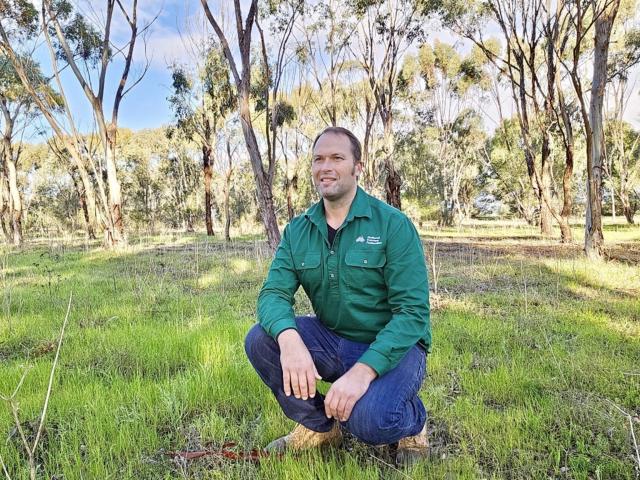There has been a mixed response to the release of the Dyer Community Engagement Review regarding transmission and renewable energy developments in regional areas.
The National Farmers’ Federation welcomed the release of the report, but said the report’s recommendations didn’t “even touch the sides in addressing the problems being felt across Australia”.
NFF president David Jochinke said it was good to see the report by Energy Infrastructure Commissioner Andrew Dyer propose ways to improve community engagement, but significant concerns remained.
“The report confirms there are chronic problems, with a survey showing a staggering 92 per cent of respondents were dissatisfied with the level of engagement from project developers,” Mr Jochinke said.
The survey also found more than 90 per cent of people were dissatisfied with the information being provided or with their concerns being resolved.
“This is a staggeringly poor reflection on the situation to date and it simply can’t go on.
“Yet the report does very little to provide concrete solutions, instead referring to development of best practice guidelines and rating schemes.
“This is the exact kind of bureaucracy farmers and every day Australians are sick and tired of. It will do nothing to reassure farmers and communities their interests are being acknowledged or protected.
“It’s critical engagement is a two way street and that engagement is genuine, addresses concerns and goes further than energy companies ticking a box ‘we’ve told them our plan’.”
The report suggests there needs to be better identification of preferred locations for new projects, as well as provision and confirmation of ‘no-go’ or inappropriate zones.
“We need to see strong leadership from the government, so we don’t lose valuable agricultural land in the rush to get transmission connectivity. The NFF stands ready to work with government to drive these outcomes as a matter of urgency,” Mr Jochinke said.
“The report contained no commentary on tax treatment of payments and compensation, nor equitable processes for negotiation of access and payment regimes. These need urgent attention.”
The NFF specifically recommended enforceable obligations on energy proponents which govern engagement, compensation, land access arrangements and minimise impact on land use.
However, Mr Jochinke said these fell far short and while the NFF notes the recommendation to create a developer rating scheme, this needed to be a precondition for any developer to access approval or public funding, he said.
“Some of these recommendations look good on paper but will require commitment to deliver meaningful outcomes.
“It is time the government makes the structural and legislative changes required so energy project developers do not continue to run roughshod over communities and individual landholders.
“We believe we can get the balance right between meeting our primary production and energy requirements, but if the Government doesn’t act now, the projects will destroy community harmony through lack of social licence.”
Climate
Meanwhile, Farmers for Climate Action welcomed the release of the review.
Farmers for Climate Action, representing more than 8000 farmers across Australia, particularly welcomed recommendations around:
* Establishing Ombudsman roles to receive complaints about behaviour by developers.
* Improving community benefits from developments.
* Selecting only those projects which have established good community relations, and are planned for appropriate sites, to go ahead.
Chief executive officer Natalie Collard said she was glad farmers’ voices had been heard as part of the review.
“The good and bad must be put on the table and dealt with, and we were glad to see legitimate concerns were printed in this review and were not hidden,” Ms Collard said.
“It’s important farmers’ voices continue to be heard as the recommendations are implemented.
“We can’t afford a repeat of the behavior we’ve seen from coal seam gas and coal developers in the transmission and renewable energy space. Some project proponents have failed badly and this review can be an important step towards improving practices of some operators, including government-owned operators, as the review states.
“Emissions reduction is simply too important to stuff up. We need deep emissions reductions this decade to protect our family farms. With wind energy companies now offering more than $40,000 per turbine per year and solar companies offering around $1500 per hectare per year, and farmers often able to continue to farm sheep under both, farmers stand to gain so much from the energy shift.”
Ms Collard some some renewables companies were proposing community benefits funds of around $1 million a year, with the local community itself to choose what the money is invested in.
“We’re also aware of wind projects proposing to pay more than 50 local farmers, including neighbouring farms. This energy shift can be done well. We just need to approve developments doing the right thing and refuse those which don’t benefit communities and farmers.
“Farmers for Climate Action looks forward to working constructively with the government as these recommendations are implemented.”









